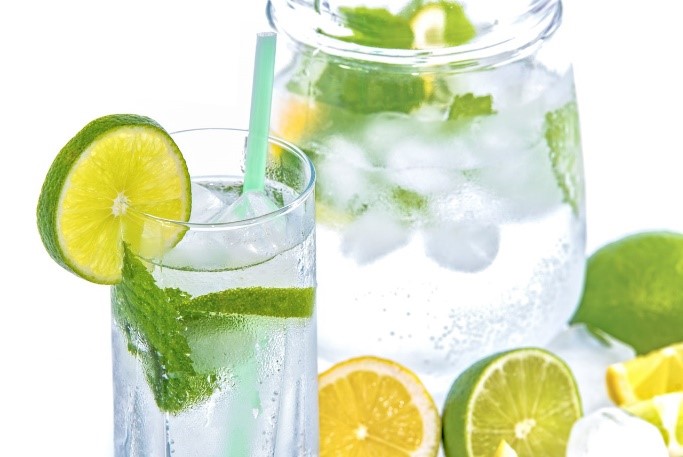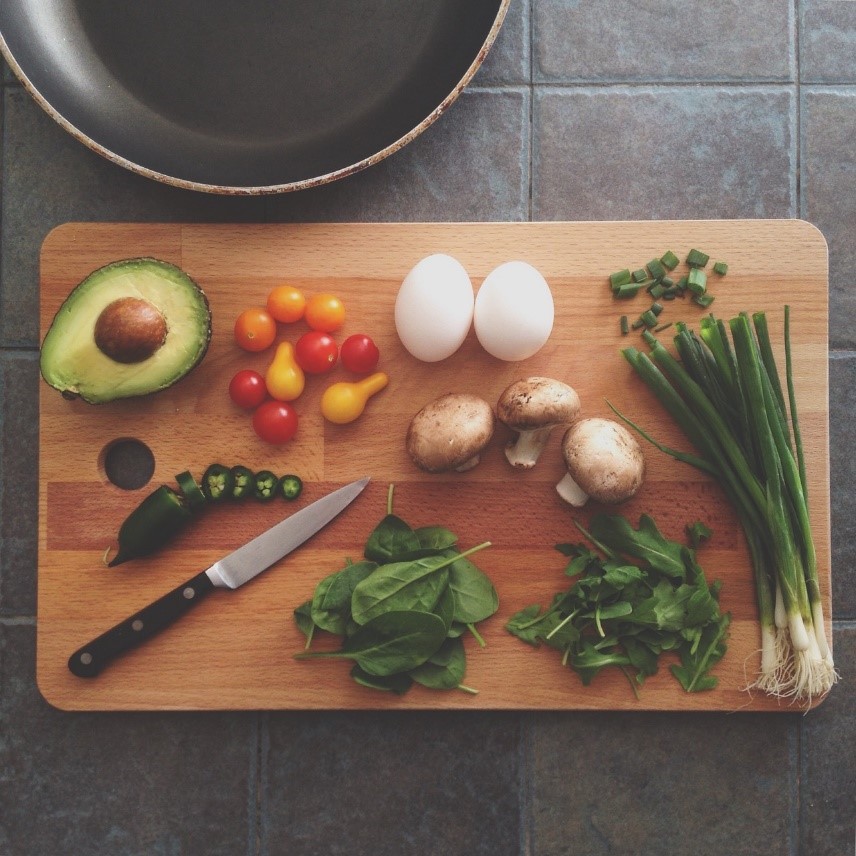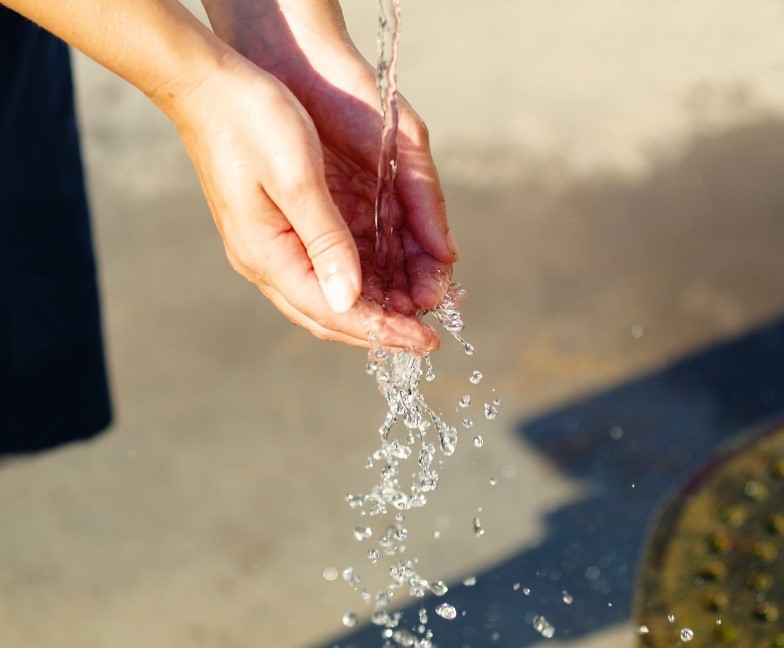
The summer is right around the corner and we can all feel its heat!
But, before we get too excited about the sea and the beach, we should know the hidden and not-so hidden dangers of the hottest season.
This is especially important for the people who observe Ramadan fasting.
Hydrate a lot!
 During the hot summer months our bodies lose a lot of liquids through sweating, so it’s important to keep an adequate hydration level. Thirst is the first bodily sign of dehydration so make sure to drink up!
During the hot summer months our bodies lose a lot of liquids through sweating, so it’s important to keep an adequate hydration level. Thirst is the first bodily sign of dehydration so make sure to drink up!
Moreover,
In order to preserve the natural electrolyte balance, besides water you can also drink a lot of freshly squeezed juices or enjoy a cold, superfood-enhanced smoothie. For those who observe Ramadan fast – during suhur it is a good idea to drink up liquids that are balanced with electrolytes but low in sugar – such as veggie smoothies or a very light soup.
Avoid heavy, grilled meals and cut back on spices!
 Heavy, grilled meats and the summer heat don’t play well at all. They are usually brimming with salt and saturated fat which is a very bad news for your cardiovascular system.
Heavy, grilled meats and the summer heat don’t play well at all. They are usually brimming with salt and saturated fat which is a very bad news for your cardiovascular system.
Increased consumption of salt makes our bodies retain more water, which in turn increases our blood pressure and strains the kidneys. Because heavy grilled meat is harder to digest it speeds our metabolism which further strains the body’s ability to adequatly cool itself.
Chillis, and other hot spices also act as heat generators inside the body and should be avoided during the scorching summer heat.
During iftar, after an entire day of fasting, it’s of vital importance not to succumb to the hunger-pang and stress our bodies with oversized, calorie-heavy meals. Avocado, nuts and dried fruits are a rich source of healthy calories that won’t stress our digestive system.
After all,
It is not the quantity of food we eat that sustains us, but the healthy digestion and absorption of nutrients. During suhur, a balanced meal rich in protein, calories and liquids will help you get through the day.
Lay off the coffee!
Even though coffee can be very important part of the morning routine, it’s wise to lay it off during the hot summer months. The caffeine contained in coffee is a powerful neuro-stimulant that makes our nerves work intensely.
That is to say.
During the scorching summer heat our bodies already work intensely to avoid overheating and retain homeostasis, which means that caffeine puts a lot of undue stress on our already stressed out bodies.
In general it is a smart thing to avoid consuming stimulants such as energy drinks or caffeine-rich sodas because they do not sate our thirst and actively dehydrate our bodies.
Avoid direct sunlight and stay properly cooled throught the day!
 This sounds like a no-brainer but it’s very important to be sufficiently protected against direct sunlight. If possible, avoid going out during the hottest daily hours but if that’s not the case, make sure you wear protective sunglasses and an umbrella to protect yourself against the scorching rays. UV rays are very bad for the skin so make sure you use adequate protective, high factor skin-lotion.
This sounds like a no-brainer but it’s very important to be sufficiently protected against direct sunlight. If possible, avoid going out during the hottest daily hours but if that’s not the case, make sure you wear protective sunglasses and an umbrella to protect yourself against the scorching rays. UV rays are very bad for the skin so make sure you use adequate protective, high factor skin-lotion.
Wearing protective shades is advised as direct eye exposure to scorching summer sunlight can lead to retinal damage.
The best way to achieve proper cooling of the body is to spend the worst heat hours in an adequately air-conditioned space (the indoor/outdoor temperature difference shouldn’t be more than 10 degrees Celsius, to prevent shock when changing rooms.
Also,
Another great way to cool your body is to frequently wash your forearms, face and neck with cold water. This is important if you are forced to spend the day outdoors.
Exercise, but not over-exert!
Light to moderate exercise is another great way to help your body regulate its temperature and remain fit and strong. A mild shower after a light-to-moderate routine will also help you survive the heat of the summer.
It is important to note that all routines shouldn’t be done in direct summer sunlight.
Final words,
If you recognize any signs of a heatstroke such as:
- Dry, red skin
- Vomiting and Nausea
- Tachycardia and rapid breathing
- Dizziness
- Headache
- Seizure
Consult your medical professional immediately and apply first aid in the form of wetting the skin with cold water, applying towels wet with cool water on the neck, back and armpits.
*This website is for informational and entertainment purposes only and is not a substitute for medical advice, diagnosis or treatment. Please consult your physician whenever you plan to make significant changes in your diet.
